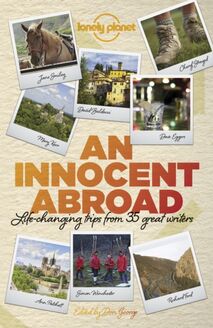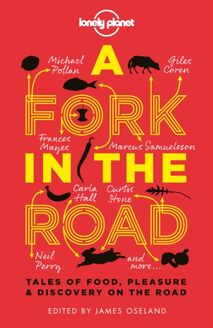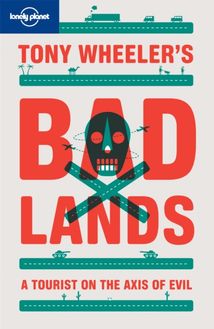-
 Univers
Univers
-
 Ebooks
Ebooks
-
 Livres audio
Livres audio
-
 Presse
Presse
-
 Podcasts
Podcasts
-
 BD
BD
-
 Documents
Documents
-
- Cours
- Révisions
- Ressources pédagogiques
- Sciences de l’éducation
- Manuels scolaires
- Langues
- Travaux de classe
- Annales de BEP
- Etudes supérieures
- Maternelle et primaire
- Fiches de lecture
- Orientation scolaire
- Méthodologie
- Corrigés de devoir
- Annales d’examens et concours
- Annales du bac
- Annales du brevet
- Rapports de stage
La lecture à portée de main
Vous pourrez modifier la taille du texte de cet ouvrage
Découvre YouScribe en t'inscrivant gratuitement
Je m'inscrisDécouvre YouScribe en t'inscrivant gratuitement
Je m'inscrisEn savoir plus
Vous pourrez modifier la taille du texte de cet ouvrage
En savoir plus

Description
Sujets
Informations
| Publié par | Lonely Planet |
| Date de parution | 01 décembre 2011 |
| Nombre de lectures | 2 |
| EAN13 | 9781742208671 |
| Langue | English |
| Poids de l'ouvrage | 2 Mo |
Informations légales : prix de location à la page 0,0350€. Cette information est donnée uniquement à titre indicatif conformément à la législation en vigueur.
Extrait
LONELY PLANET
UNPACKED
Travel disaster stories by
Tony Wheeler and other
Lonely Planet authors
LONELY PLANET PUBLICATIONS
Melbourne • Oakland • London
Lonely Planet Unpacked: Travel disaster stories by Tony Wheeler and other Lonely Planet authors
Published by Lonely Planet Publications
Head Office: 90 Maribyrnong Street, Footscray, Vic 3011, Australia Locked Bag 1, Footscray, Vic 3011, Australia
Branches: 150 Linden Street, Oakland CA 94607, USA 2nd floor, 186 City Rd, London, EC1V 2NT, UK
Published 1999
ebook 2011
Map by Tony Fankhauser
Designed by Jane Hart
Edited by Janet Austin
ebook ISBN: 9781742208671
Text © Lonely Planet 2011
Map © Lonely Planet 2011
All rights reserved. No part of this publication may be sold or hired without the written permission of the publisher.
Contents
DANI VALENT
Crash
MILES RODDIS
The first hour of the first day of my first assignment for Lonely Planet
TONY WHEELER
Walking the Mount Kailash circuit
JENNIFER BREWER
Terror and anguish on Europe’s safest roads
TIM NOLLEN
Misadventure in south-west China
SUZANNE POSSEHL
Three spies in a diamond tub
MARK HONAN
Travel in India – the hard way
MATT FLETCHER
Lost in Madagascar
BRUCE CAMERON
Tales of Tuscany
JIM DUFRESNE
Last rites on the Tatshenshini
NICK RAY
The motorcycle diaries
ROSEMARY HALL
Falling for Greece
PAUL GREENWAY
The Mongolian Scramble
RANDALL PEFFER
Riding out the big one
SCOTT MCNEELY
Service all hours
JOHN MOCK
Running the gauntlet
CHRIS ROWTHORN
New Year’s Eve in Borneo
ANDREW DRAFFEN
The local cure
SUSAN FORSYTH
Run, don’t hesitate!
ANTHONY HAYWOOD
Fear and loathing in Tuva
PAT YALE
A costly trip
BRAD WONG
Watch your step
DANIEL ROBINSON
Expulsion from Hanoi
DAVID HARCOMBE
A close call in the Cooks
RYAN VER BERKMOES
Dissolute in Resolute
STEVE FALLON
A weekend lost and found (or how I met the Wheelers)
<?pg 6?>
<?pg 7?>
<?pg 9?>
Crash
Dani Valent <?pg 10?>
Working for Lonely Planet has prevented Dani from sailing across the Atlantic on a dog trampoline, mapping the human genome and hosting her own cooking show ( Oh Naughty Wok ). Other than that, she doesn’t reckon it’s too bad. Dani supports native title for Australia’s Aborigines and the Carlton Football Club. <?pg 11?>
Y OU know how this ends. I got home alive. But when the car stopped rolling, heaved, and then sat, dreadfully silent and tangled way off the road, I hadn’t known what was going to happen.
We were three days into an outback road trip. I’d borrowed a friend’s dinky four-wheel drive, loaded it up with stuff, my housemate Dave, his Dutch girlfriend Lotte, and her friend Linda, and driven west, skirting Adelaide, to spend the night in rough-as-guts Port Augusta. Next day we’d driven 500 kilometres or so north till we hit Coober Pedy. It’s a gem and gimmick town, so hot that a lot of houses are hacked into the ground. We spent a day there, listlessly looking at opals and being hassled by bored locals, before pondering our map and choosing a dirt track arrowing east into the desert. It was 120 kilometres to the next settlement, an Aboriginal outstation where we could camp and fill up on bore water. We were assured that the people there could point out the road onward to the Oodnadatta Track, which we thought we might follow up north to the Simpson Desert.
We filled up with petrol and Kool Mints. I was driving, and I was happy. This was the real journey – an empty rutted road, flat red desert left right in front and behind, and the wind pouring in the windows. Dave, in the front seat, talked expansively to the Dutch girls, explaining things I guessed he’d read on cereal boxes. I joined in – we were acting more Aussie than we’d ever been, breathing Vegemite and bush lore. We told them how kangaroos were born, and stories of explorers (mixing, if I recall, the adventures of Burke and Wills with the trials of Amundsen on his way to the South Pole). They probably knew better, having already told us at dinner the night before about the federation of Australia, but they let us waffle on, our accents getting broader by the kilometre. I think I even said ‘strewth’ and I’m sure Dave said ‘fair dinkum’, things we’d surely never heard anyone say in real life. <?pg 12?>
We were about an hour out of Coober Pedy, halfway to the outstation, taking a sandy hill at eighty kilometres an hour when it gave way to a bend, invisible till it was upon us. The car started skipping sideways, nothing to do with me. I felt I was righting it, working with the skid like a true-blue Aussie sheila, when the steering wheel dialled out of my hand, and in a blink, the car launched into a roll. A big skipping jaunty roll. A twisty airborne roll. A triple roll which went on for a long long time, and when it stopped we all breathed out and noticed that no-one had died.
Slowly we got out, very grateful, very scared. We picked ourselves out of the car limb by limb, counting to four and feeling lucky. We talked to one another gathering brief facts, getting assurances that we were all indeed OK. Dave was the only one with blood on him; a cut leg, not too bad. The roof rack was fifty metres along the road, debris and our gear strewn along the ground in between. We sat on the ground, flattened by shock and the gravity of our situation. We were about sixty kilometres from help in either direction. We hadn’t seen one other car on the road. We’d passed no water, no crossroad, no building and certainly no emergency phone. I felt badly guilty but was too scared to ask if the others all blamed me.
Lotte and Linda were all for taking a bottle of water and walking back to town, but Dave and I talked them out of it, juicing up news stories about people in exactly our position who’d been found dead of thirst just out of sight of their cars. We said it was essential that we all keep together.
We became organised, in a mechanical kind of way. An inventory was taken: we had food for three big camp-site meals (steaks and potatoes and corn and pumpkin and puddings in cans). A bag of oranges, ten litres of water, some biscuits, a wad of pot, Kool Mints.
Water was the most serious problem. What we had might stretch for a couple of hot, thirsty days, but it seemed quite likely we could wait a week for a rescue car. So we<?pg 13?> started pissing in bottles, building up an emergency reservoir. Dave and Lotte wanted to combine our piss; Linda and I were all for four separate stashes. But our cup never threatened to runneth over – Dave was the only one who was able to catch much of his flow in the narrow-necked litre bottle we’d recently emptied of lemonade.
I dug a hole in the lee of the car, scooping out hot sand and then cooler sand, almost wet. Could we wring out the sand somehow? Suck on it? I foresaw a dramatic death: having lost my mind, troubled and forsaken explorer-style, I sucked on sand and choked. I surveyed the shimmering red plain – there wasn’t even a tree on which I could carve my initials.
As I continued to dig, images from a school camp came to mind – a bushcraft lesson in collecting water with a plastic bag, a leaf . . . wasn’t there string involved somehow? Then I looked at my thighs – big Aussie hams compared to the Dutch girls’ pegs – and recalled a story about Antarctic explorers who’d eaten their dogs, saving the heads till last. Most nutritious, those vitamin-rich doggy brains. I should be eaten first – the guilty driver, the fleshiest.
The Dutch girls were looking at me, not looking hungry at all.
‘Of course,’ I said, ‘we can collect water using leaves and string before we have to drink Dave’s piss.’
Lotte and Linda looked fairly impressed.
We put our food and drink into the hole and set about collecting some wood. There wasn’t much of it – just scratchy saltbush twigs and stray windborne grass – but we put it all in a pile which immediately blew away. We raced after it and chucked it into the car.
Oh the car. Georgie’s lovely little city four-wheel drive, generously lent to us, to me really. And now terribly terribly undeniably dead. Dave and Lotte had taped garbage bags to the shattered windows, and they thrashed in the wind. The car looked like a crippled metal bird, pathetically trying to fly away. Could we somehow make hot-air balloons out of garbage bags? I wondered idly, a desert Houdini with<?pg 14?> mush for brain. We cleared the glass from the car, making a pile like a midden on the edge of the road. Now one of us could at least sit on the back seat, as long as their head was cocked at forty-five degrees and they didn’t mind head-butting the splayed seat in front.
I kept sneaking glances at the car, the rude canned shell of it. We all kept saying how lucky we were, while peering hopefully and scared this way then that along the burning, empty road.
Dave and I levered the mashed bonnet open with the tyre iron and peered inside as if it were an attic inhabited by ghosts. Like the very worst of backyard, arse-up mechanics, we scratched our heads and muttered. I looked for the fan belt, because I knew – probably from an episode of Neighbours – that it could be replaced with a stocking. A Dutch girl could surely be relied upon to have pantyhose. Unfortunately, the fan belt was intact, though the fan was leering wildly at the fuel pump and everything else seemed pretty bent out of shape. And, as Linda pointed out, it didn’t much matter about the engine when anyone could see that the wheels on the left side of the car were flat to the ground while still being somehow attached to the axle.
Maddeningly, the radio worked.
‘Can’t we swap the wires over and broadcast our location?’ I asked Dave.
He looked at me witheringly. ‘Maybe I’ll just find the frequency and play an SOS on my guitar.’
All of us kept thinking we heard cars. The wind made shapes in the desert, rushing along corridors we couldn’t see, slamming doors and scurrying up lone
-
 Univers
Univers
-
 Ebooks
Ebooks
-
 Livres audio
Livres audio
-
 Presse
Presse
-
 Podcasts
Podcasts
-
 BD
BD
-
 Documents
Documents
-
Jeunesse
-
Littérature
-
Ressources professionnelles
-
Santé et bien-être
-
Savoirs
-
Education
-
Loisirs et hobbies
-
Art, musique et cinéma
-
Actualité et débat de société
-
Jeunesse
-
Littérature
-
Ressources professionnelles
-
Santé et bien-être
-
Savoirs
-
Education
-
Loisirs et hobbies
-
Art, musique et cinéma
-
Actualité et débat de société
-
Actualités
-
Lifestyle
-
Presse jeunesse
-
Presse professionnelle
-
Pratique
-
Presse sportive
-
Presse internationale
-
Culture & Médias
-
Action et Aventures
-
Science-fiction et Fantasy
-
Société
-
Jeunesse
-
Littérature
-
Ressources professionnelles
-
Santé et bien-être
-
Savoirs
-
Education
-
Loisirs et hobbies
-
Art, musique et cinéma
-
Actualité et débat de société
- Cours
- Révisions
- Ressources pédagogiques
- Sciences de l’éducation
- Manuels scolaires
- Langues
- Travaux de classe
- Annales de BEP
- Etudes supérieures
- Maternelle et primaire
- Fiches de lecture
- Orientation scolaire
- Méthodologie
- Corrigés de devoir
- Annales d’examens et concours
- Annales du bac
- Annales du brevet
- Rapports de stage


















